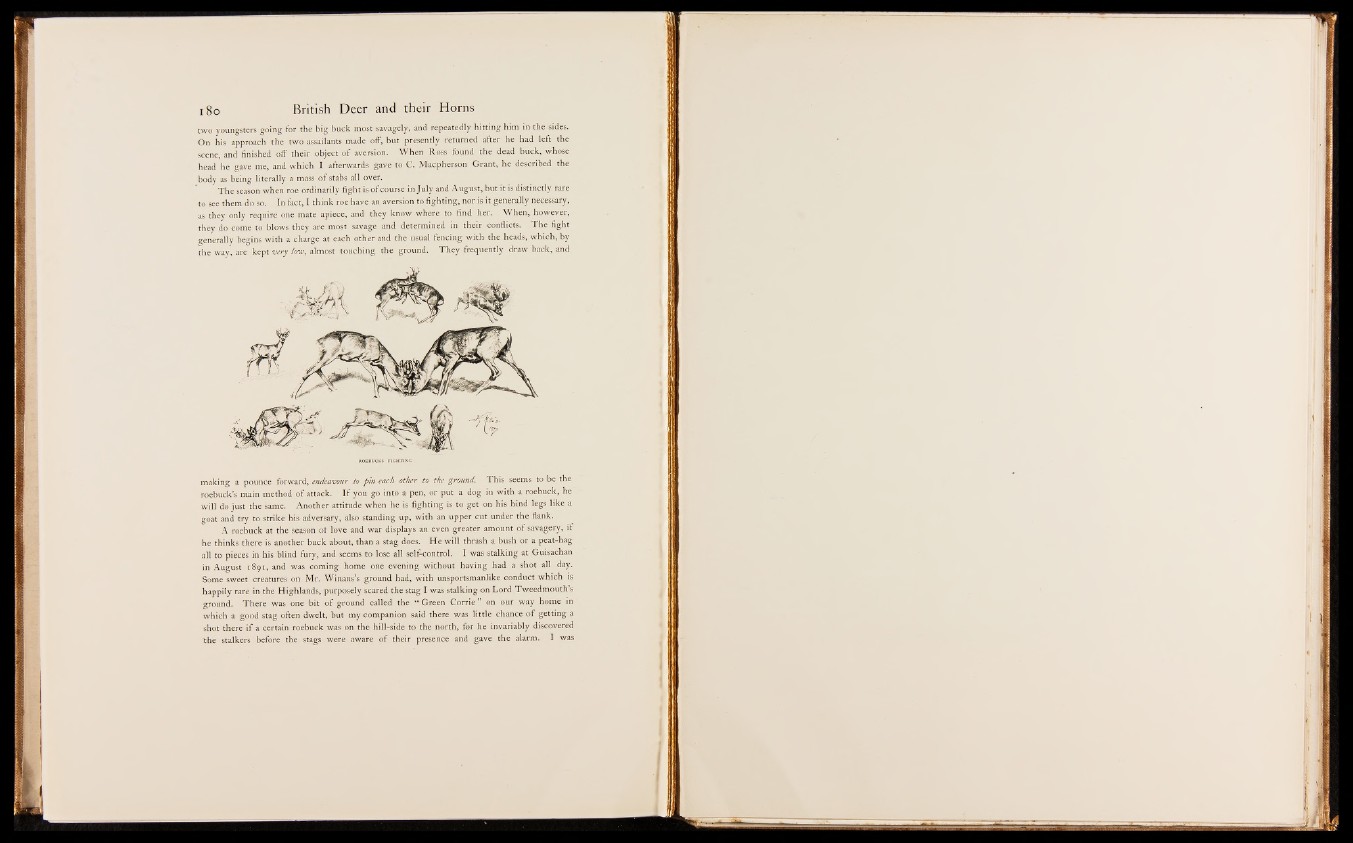
two youngsters gfjing for the MgfSuck mosS-livagely, and repeatedly hitting him in the sides.
On his approach the two assailants made d f , but presently returned after he had left the
scene, and finished off their object o f aversion. When Ross found the deat: buck, whose
head he gave me, and which I afterwards' gave to C. Macpherson Grant, h ^ ^ r iB e d the
body as being literally a mass o f stabs all over.
The season when roe ordinarily fight is o f course in July and August, but it is distinctly rare
to see them do so. In fact, I think roe have an aversion to fighting, nor is it generally necessary,
as they only require one mate apiece, and they know where to find her. When, however,
they do come to blows they are most savage and determined in their conflicts. The fight
generally begins with a charge at each other and the usual fencing with the heads, which, by
the way, are kept very low, almost touching the ground. T hey frequently draw back, and
making a pounce forward, endeavour to pin each other to the ground. This seems to be the
roebuck’s main method o f attack. I f you go into a pen, or put a dog in with a roebuck, he
will do just the same. Another attitude when he is fighting is to get on his hind legs like a
goat and try to strike his adversary, also standing up, with an upper cut under the flank.
A roebuck at the season ot love and war displays an even greater amount o f savagery, i f
he thinks there is another buck about, than a stag does. He will thrash a bush or a peat-hag
all to pieces in his blind fury, and seems to lose all self-control. I was stalking at Guisachan
in August 1891, and was coming home one evening without having had a shot all day.
Some sweet creatures on Mr. Winans’s ground had, with unsportsmanlike conduct which is
happily rare in the Highlands, purposely scared the stag I was stalking on Lord Tweedmouth’s
ground. There was one bit o f ground called the “ Green Corrie ” on our way home in
which a good stag often dwelt, but my companion said there was little chance o f getting a
shot there i f a certain roebuck was on the hill-side to the north, for he invariably discovered
the stalkers before the stags were aware o f their presence and gave the alarm. I was